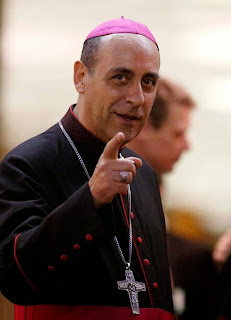AP pressured to call climate skeptics ‘deniers’
Breaking: Is the Vatican backing off on their anticipated climate position?
…Breaking: Skeptics Pressure Vatican to Back Off on Climate?
…NASA: Record Streak of No Major U.S. Hurricane Landfalls Due to ‘Luck’
“The last nine hurricane seasons were not weak – storms just didn’t hit the U.S.,” Hall said. “It seems to be an accident of geography, random good luck.”…“Hurricanes respond in complicated ways to their environment,” Hall said. Regarding the larger climate change-hurricane question, he said, “It’s one of the areas of climate change research where reasonable people can still disagree.”
The researchers ran 1,000 computer simulations of the period from 1950-2012 – in effect simulating 63,000 separate Atlantic hurricane seasons. They found that a nine-year period without a major landfall is likely to occur once every 177 years on average.…
UN ‘climate fund’ grows to $4 billion: UN Urges Governments To Accelerate Contributions To Green Climate Fund
…Watch: Flashback 2009: Kerry ridicules Inhofe on science, then predicts ice free Arctic summer in 5 years
…Report: Papal Climate Encyclical Postponed – To Undergo Revision – Skeptics’ Trip To Rome May Have Forced Revisions?
Report Via: http://theradicalcatholic.blogspot.com/2015/05/encyclicus-maculatus-eco-encyclical-to.html
Encyclicus Maculatus: Eco-Encyclical To Undergo Revision

 |
| Archbishop Victor Manuel Fernández |
I have read that some say that the Roman Curia is an essential part of the mission of the Church, or that a Prefect in the Vatican is the sure compass preventing the Church from falling into ignomy, or that this Prefect guarantees the unity of the Faith and facilitates serious theology from the Pope. But Catholics know from reading the Gospel that it was to the Pope and the Bishops that
Australia Alerted To Real Reasons Behind Climate Change Scare
What Does ‘Sustainability’ Really Mean?
http://www.crisismagazine.com/2015/what-does-sustainability-really-mean…
Will Antarctic researchers be world’s first ‘Climate Refugees’ as ice grows?
http://www.climatechangedispatch.com/we-were-wrong-about-climate-refugees.html…
